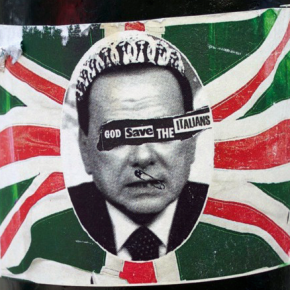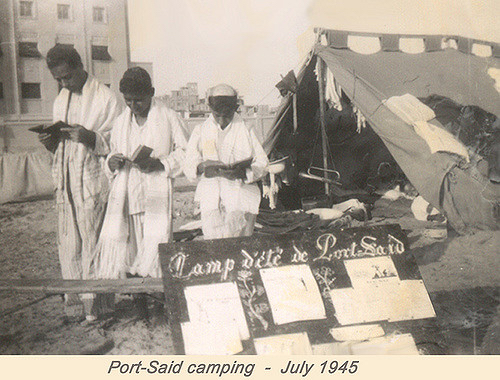On August 29th, The Jerusalem Post terminated one of its top columnists, Larry Derfner. The long-serving pundit lost his job by falling into a language trap that’s been a bane of peace activists for decades. Some will contend that Derfner’s dismissal is a positive for progressive forces. The newspaper’s political orientation is alleged to be centrist, but is highly conservative. Nevertheless, its diversity of views is said to span from Derfner on the left, to Caroline Glick on the right.
The difference, of course, is that Larry Derfner was a columnist, while Glick, who is also a fellow at hard right think tank the Center for Security Policy, is Senior Contributing Editor. When Glick publishes blatantly racist material, there is no question of whether she’ll keep her job. Not so for Derfner. The columnist’s absence removes a left-wing fig leaf from the paper. There’s nothing wrong, of course, with it being right-wing. However, The Jerusalem Post should not portray itself as a balanced periodical.
Still, it would be unfair and untrue to suppose that Larry Derfner was fired for his political views. He lost his job for a piece he published on his own personal blog, where he appeared to justify terrorism. Derfner was trying to defend the Palestinians’ right to resist the occupation, a right they certainly have, and one that is recognized under international law. He was also defending another equally valid point: that military occupation breeds violence. The problem comes from the words Derfner used to express this idea:
But if, on the other hand, we were to say very forthrightly what many of us believe and the rest of us suspect – that the Palestinians, like every nation living under hostile rule, have the right to fight back, that their terrorism, especially in the face of a rejectionist Israeli government, is justified – what effect would that have? A powerful one, I think…
Larry Derfner fell into an obvious trap by conflating terrorism and resistance. One can sympathize with his confusion. Collapsing these concepts has been an ongoing project of right-wing governments for as far back as one can remember. Particularly after the events of 9/11 and the Al-Aksa Intifada, the US and Israel have made a science out of this tactic.
There are three facts we need to remember:
1. An occupied people have the right to resist, a right which includes using violence.
2. That right does not legitimate targeting civilians in order to pressure political change from the populace. That is the dictionary definition of terrorism, and that’s what it is, whether it is perpetrated by a guerilla group or a sovereign state.
3. Historically, it is true that people resisting foreign rule will go farther than they have a “right” to.
All three of these things are true. Taken together, they help us distinguish between terrorism and legitimate resistance, while acknowledging the fact that both occupier and occupied will pursue their goals with little regard for such academic and legal niceties. Derfner bought into the propaganda that all violent resistance is terrorism. But an occupying power must, by definition, use violence and the threat of violence to enforce its rule. Neither international law, nor any reasonable ethics, can also grant such a power a legal monopoly on violence.
It may not be wise for Palestinians to use violence. I believe that is the case. But the Palestinians have the right to choose violence, with all its inherent risks, against military targets. They cannot target civilians, something both sides in this conflict (and virtually every other one today and in the past) have done without fail.
What Derfner was trying to get at is that, legal or not, occupation is an inherently violent enterprise and, while a strong occupier may be able to shield its citizenry from that violence for a time, security is always fleeting. He erred in saying that terrorism is somehow an acceptable tactic for the oppressed, a mistake Derfer recognized and tried to correct in an apology published on Israelleft.
If preventing violence is the goal, one has to wonder just what tactics are acceptable for the Palestinians to employ. Popular movements for economic pressure on Israel (the Boycott, Divestment and Sanctions movement) are demonized as an attempt to destroy the state. No distinction is made between BDS tactics that target only the occupation and those that target Israel proper.
The Palestinian attempt to advance their cause in the United Nations has elicited panic in Jerusalem and Washington, with the US threatening to cut off all aid to the Palestinians (a threat they are likely to lessen, but will remain significant,) while Israel threatens to pull out of the Oslo Accords in response, though given the degradation in the Palestinians’ political and economic conditions since Oslo was signed, this is a threat not to the Palestinian people, but to Mahmoud Abbas and the Palestinian Authority’s hold on power.
Israel, with automatic US backing, has responded by forcefully refusing to cooperate any time the legality of the occupation, and crimes committed under Israeli administration of the occupied territories, are raised by international political or judicial bodies. All of these steps are widely defined as attempts to “de-legitimize” Israel, rather than as tactics intended to promote Palestinian self-determination.
It would seem that, under the US-Israeli framework, there is only one path the Palestinians can follow: endless negotiations with Israel, with the US pretending to act as a neutral arbiter. Meanwhile, domestic political interests in the United States ensure that America’s “special relationship” with Israel will trump any attempt at mediation. If the Palestinians pursue any other tactic, it is deemed unacceptable and will bring about sanctions, despite the fact that nearly two decades have proven the trilateral negotiations model futile, leading only to a more manageable occupation for Israel.
Again, in the conclusion of his article, Derfner got enough wrong to drown out the much more important points he got right:
Whoever the Palestinians were who killed the eight Israelis near Eilat last week, however vile their ideology was, they were justified to attack. They had the same right to fight for their freedom as any other unfree nation in history ever had. And just like every harsh, unjust government in history bears the blame for the deaths of its own people at the hands of rebels, so Israel, which rules the Palestinians harshly and unjustly, is to blame for those eight Israeli deaths – as well as for every other Israeli death that occurred when this country was offering the Palestinians no other way to freedom.
No, Larry, the Eilat attack was not justified. Occupation does not make attacks on civilians acceptable. But occupation does make such attacks inevitable. They always happen in conditions of occupation. And Israel does bear responsibility for these conditions, precisely because, as Derfner says, Israel is offering the Palestinians no other way to freedom.
This article is licensed to Souciant courtesy of Babylon Times.






Somebody give this man a medal!
This is the best comment I’ve seen on the Derfner affair. It’s also the best comment for every occasion in the past or future where this issue comes up.